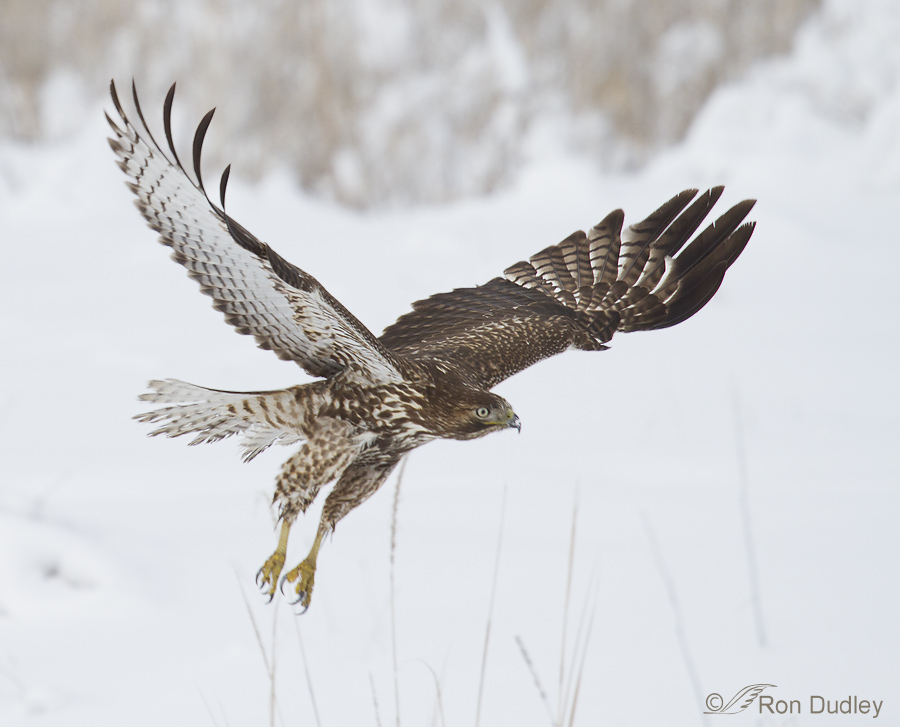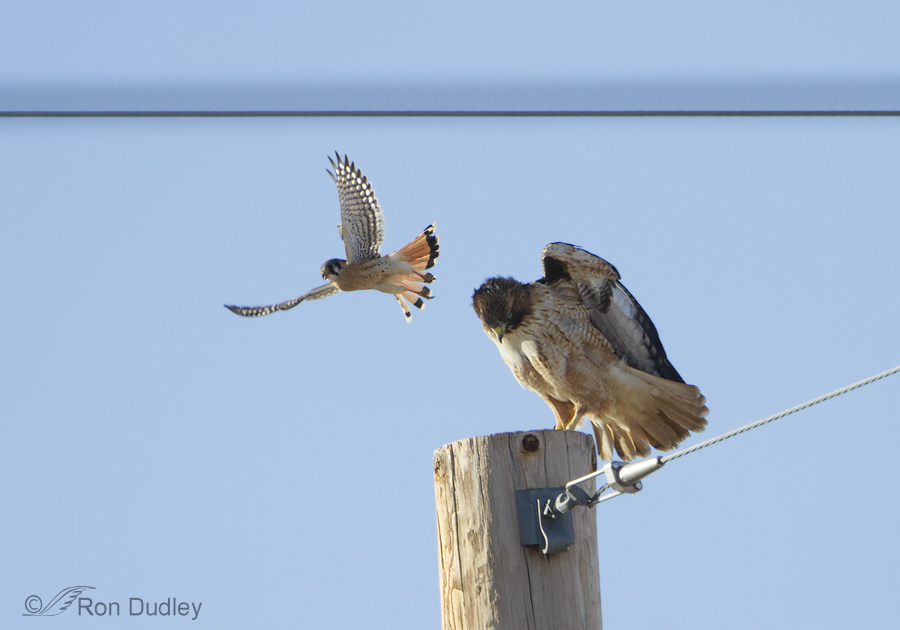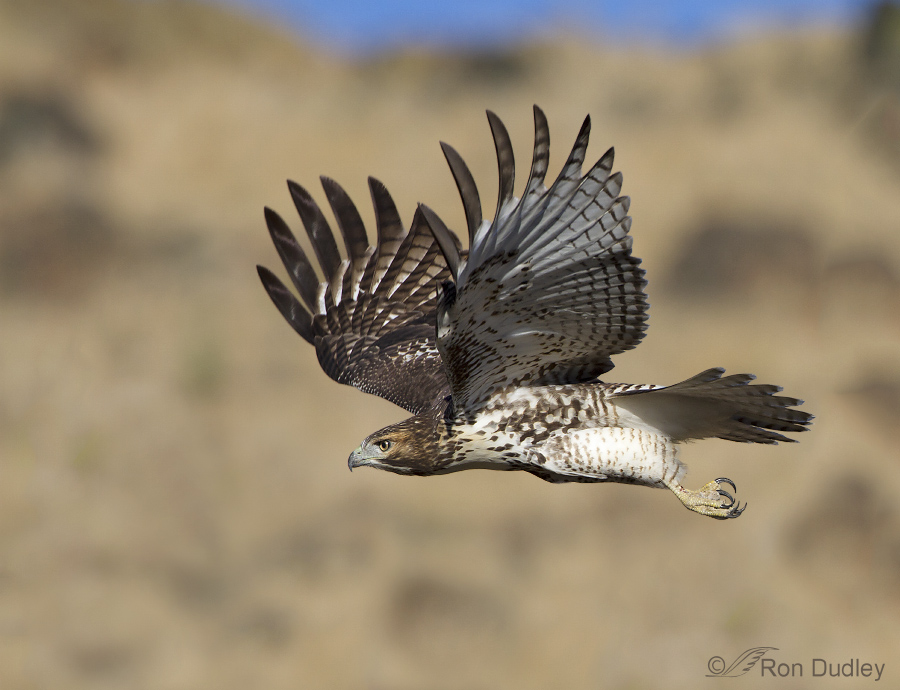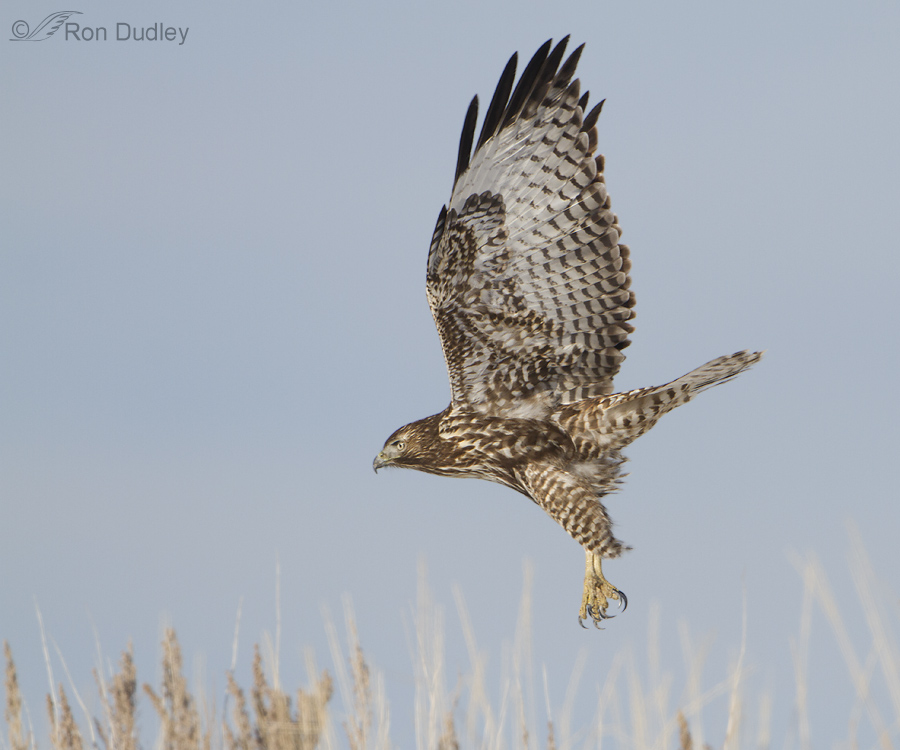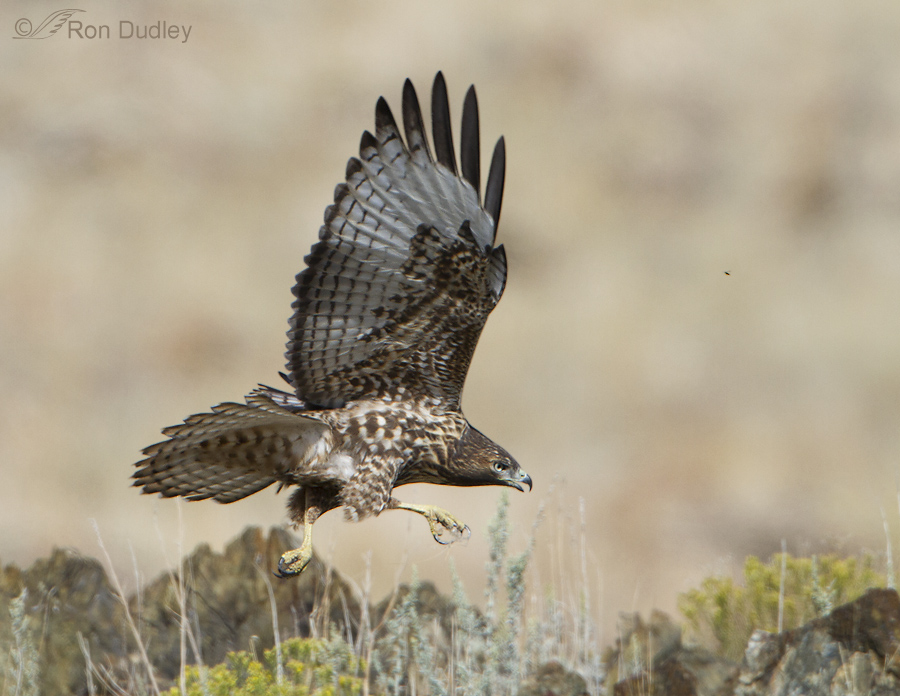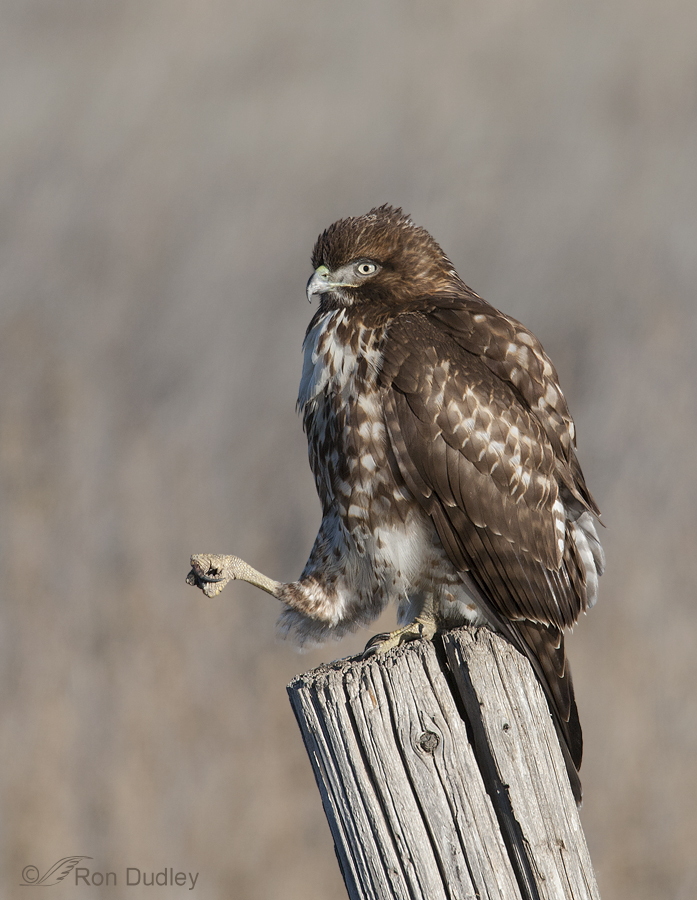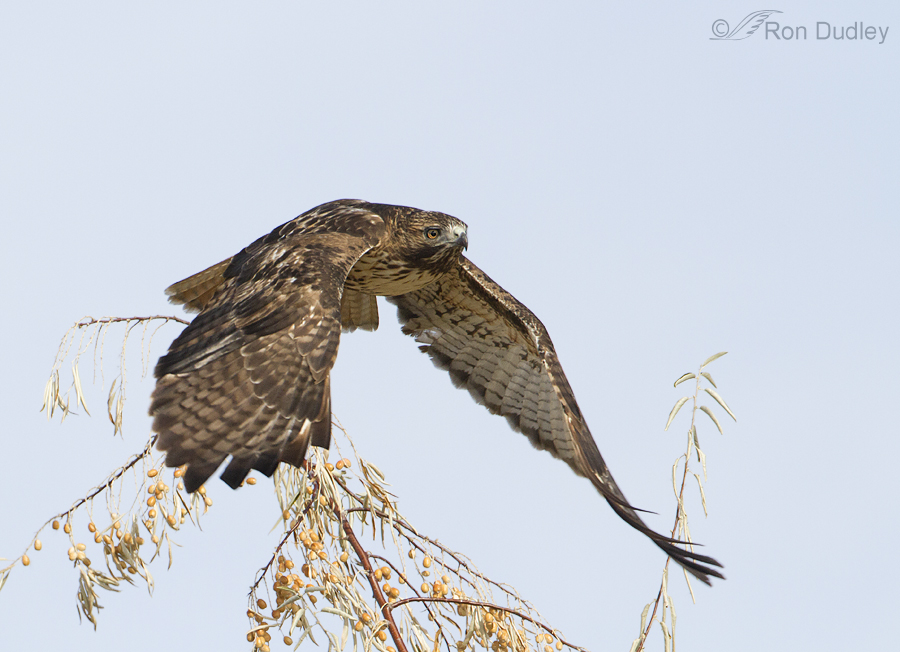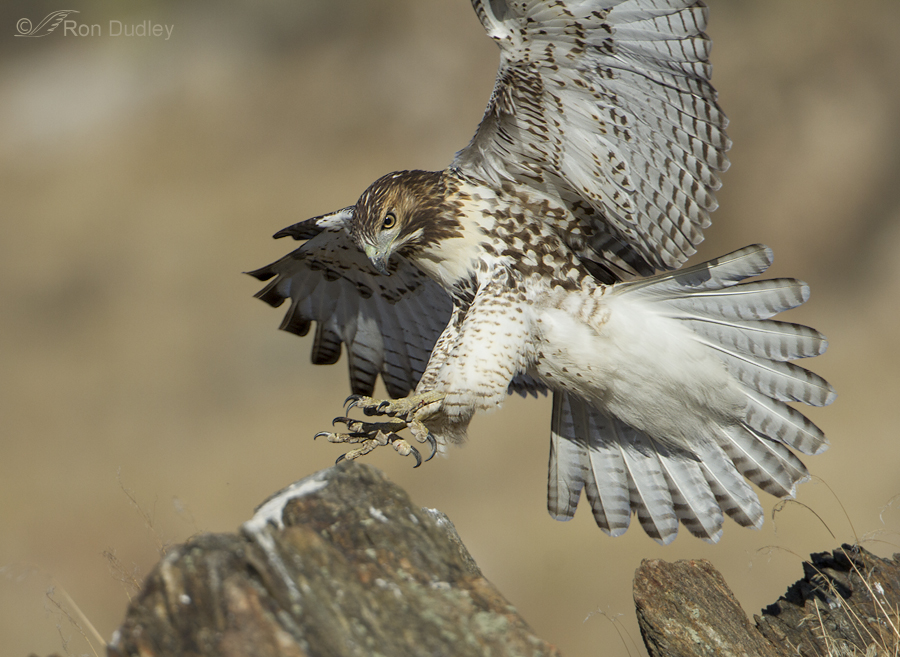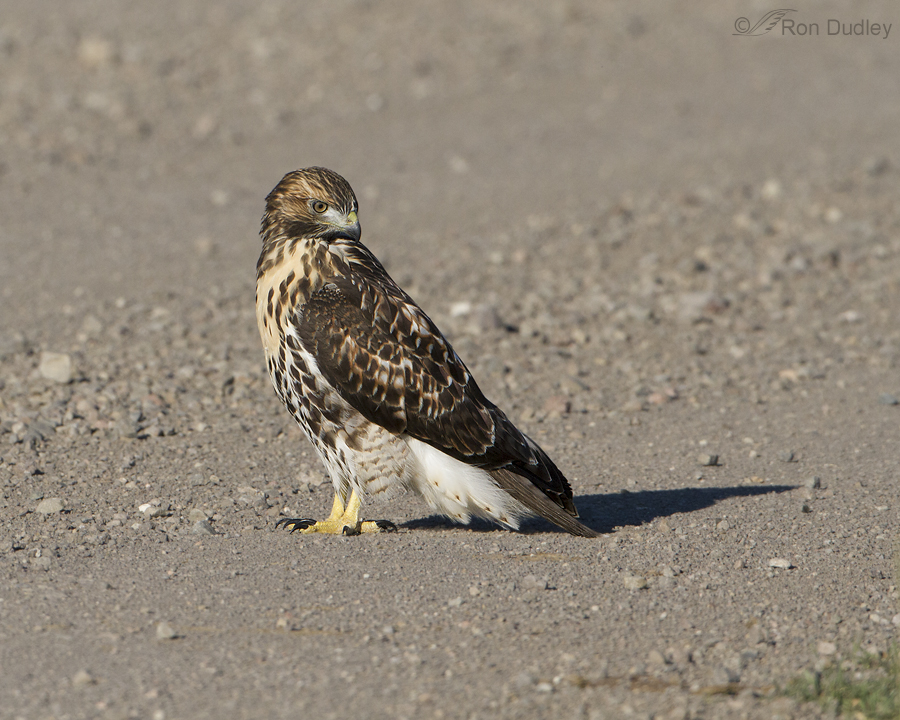Tag: buteo jamaicensis
Red-tailed Hawk Sucker-punched By A Kestrel
Juvenile Red-tailed Hawk Still Learning To Hunt
A Red-tailed Hawk And Opportunities Missed
Juvenile Red-tail Scratching An Itch In Flight
A Goofy-looking Red-tailed Hawk
You Never Know In What Direction A Raptor Will Take Off
Is A Hawk Capable Of “Planning”?
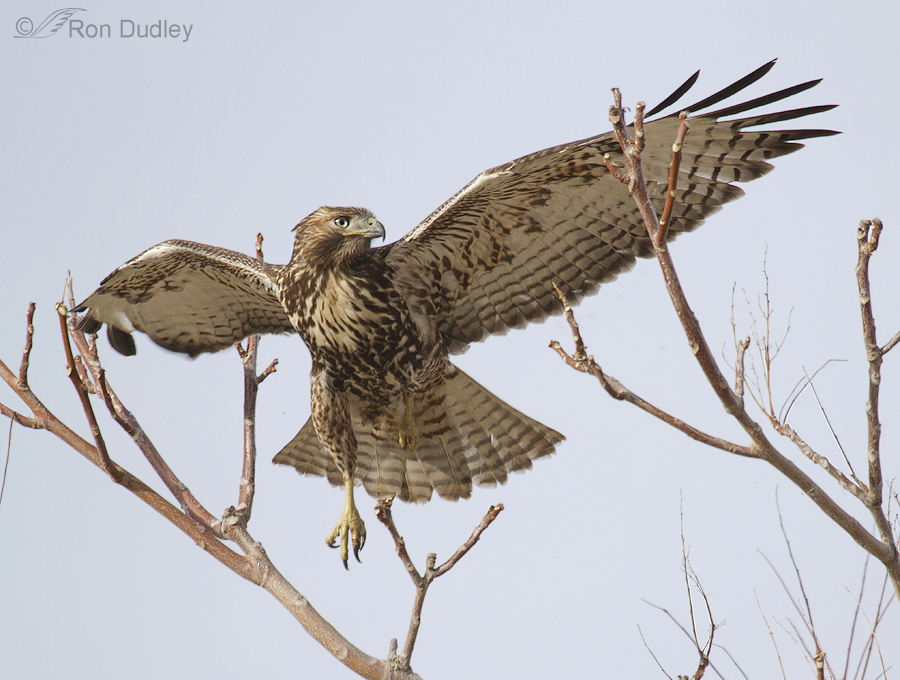
I sometimes see hawks buried so deeply in trees that I can’t help but wonder how they’re going to fly out without injury or at least feather damage. They occasionally appear to “think” about their escape route just before take-off, which implies “planning”. Some images I took yesterday brought the question to mind once again – are hawks capable of “planning”?
West Desert Red-tail In Flight
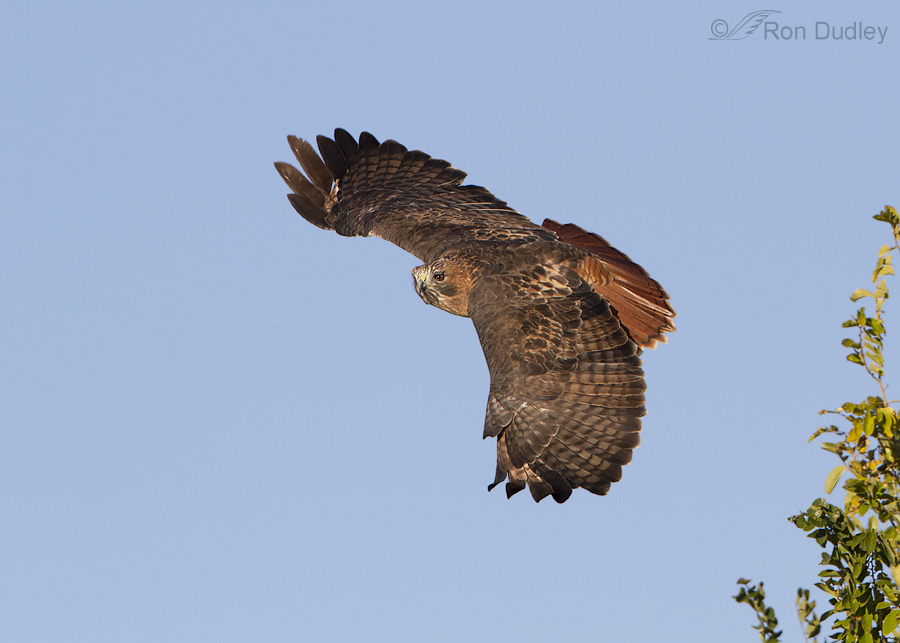
Last month we ventured out into the west desert in an attempt to locate and photograph buteos and Golden Eagles. With the exception of one adult Red-tailed Hawk and a (mostly uncooperative) Golden Eagle who let us get close it was largely a frustrating morning.
The red-tail was perched in a tree that was swaying in the wind and it was quite entertaining to watch it rockin’ and rollin’ as it attempted to remain stable on its unstable perch.
Perch-hunting Red-tailed Hawk
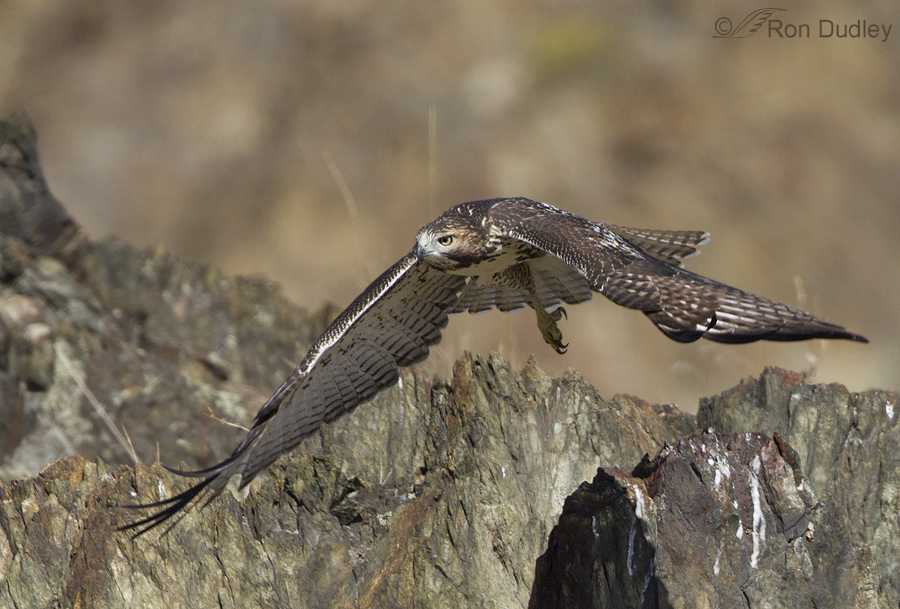
Red-tailed Hawks in North America are “sit and wait predators” who do most of their hunting (60 – 80%) from elevated perches. Though they do hunt from the air, that is not their primary hunting style. In fact, availability of elevated perches is a key factor in determining their foraging distribution.
Antelope Island is largely treeless and without power poles so Red-tails tend to be found in specific locations on the island where elevated natural perches are available. One of their favorite foraging spots is an area where there are large outcroppings of Farmington Canyon Complex rocks jutting out from the side of a small mountain, which is where I found this bird hunting voles
Red-tailed Hawk – Another Optical Illusion
A Red-tailed Hawk And Red Lichen
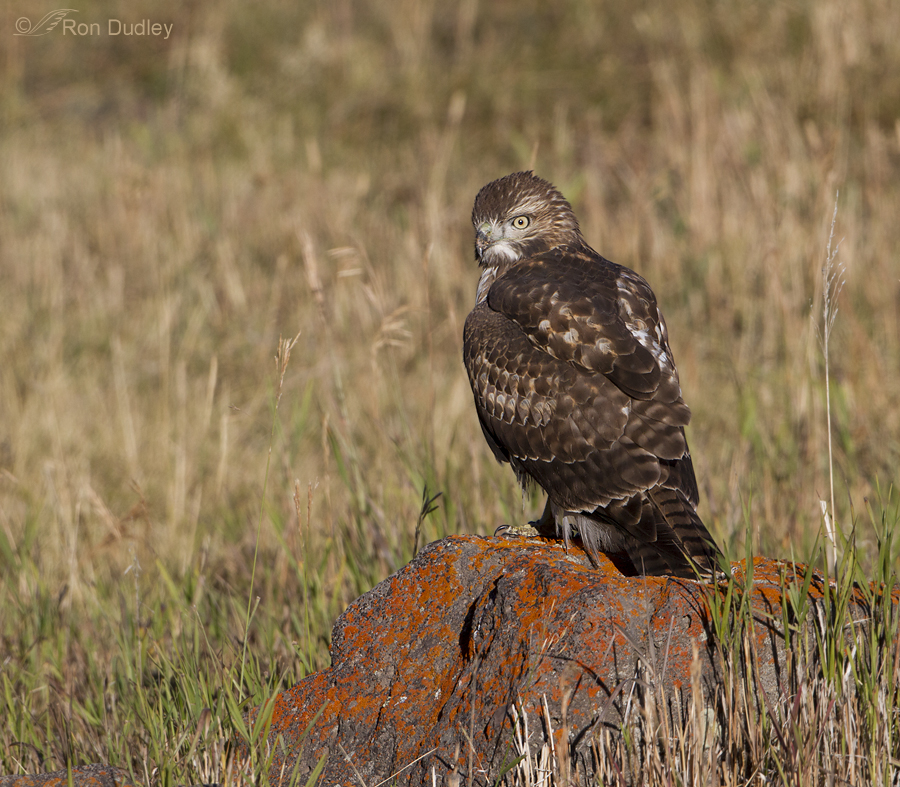
Mia and I have been visiting the Centennial Valley for about five years now (usually 3-4 times every summer) and at least once each trip, as we passed this lichen-covered rock next to the road, I would mention to her how much I would like to photograph a raptor on one of these red rocks. There’s just something about my fondness for each, the lichen covered rocks and birds of prey, that has made that kind of photograph a personal goal. But it never happened for some reason. The birds of prey just don’t seem to perch on them, preferring instead the fence posts, utility poles and trees that are usually a little too far away from the road. It’s been an unfulfilled goal for a long time.
But all that changed last week.
Red-tailed Hawk Versus Northern Harrier – Aerial Confrontation
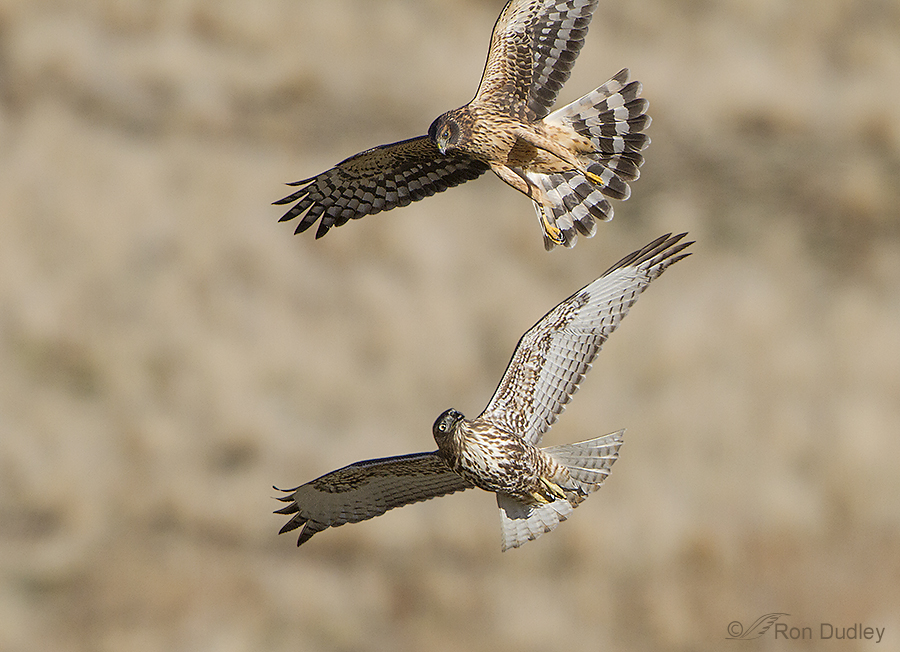
Northern Harriers are well-known for aggressive behavior toward larger raptors intruding on their territory but seldom chase off raptor species smaller than themselves. This interesting behavioral quirk apparently results from the ability of harriers to steal food from smaller raptors. It’s easier to pilfer prey from a smaller species than it is to catch it yourself so harriers let them hang around.
Red-tailed Hawk Gliding To Its Prey
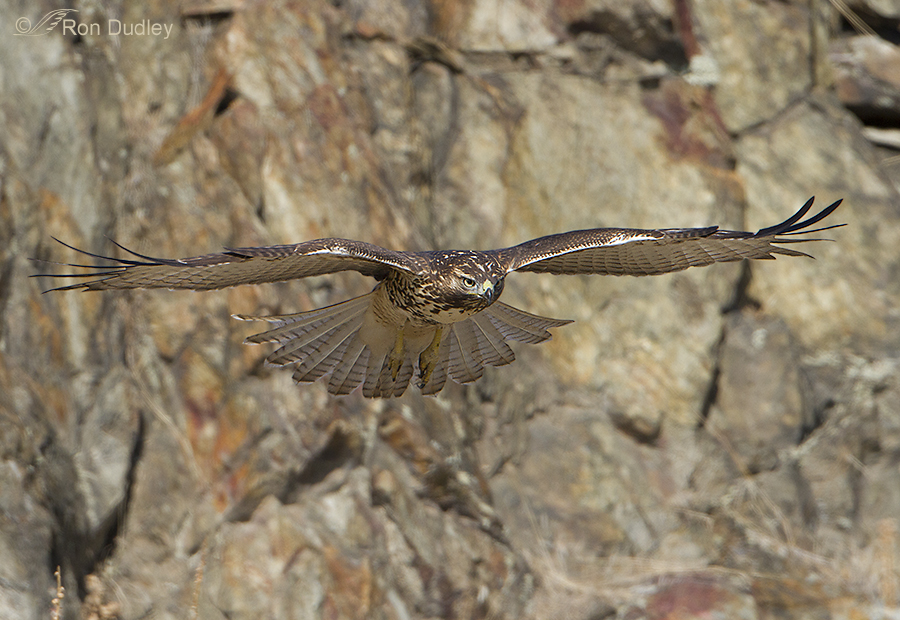
About a year ago I spent some time with this juvenile Red-tailed Hawk as it honed its hunting skills. It wasn’t yet a very good hunter but it sure tried hard. It typically perched on top of some rocky outcrops as it scanned the grassy slopes below for voles. Then it would swoop down and make its attempt, though it seldom caught anything that I was aware of. Learning to hunt isn’t easy and the price to pay for failure is a dear one.
Why Did The Red-tailed Hawk Stand On The Road?
Red-tailed Hawk Sucker-punched By A Kestrel
Juvenile Red-tailed Hawk Still Learning To Hunt
A Red-tailed Hawk And Opportunities Missed
Juvenile Red-tail Scratching An Itch In Flight
A Goofy-looking Red-tailed Hawk
You Never Know In What Direction A Raptor Will Take Off
Is A Hawk Capable Of “Planning”?

I sometimes see hawks buried so deeply in trees that I can’t help but wonder how they’re going to fly out without injury or at least feather damage. They occasionally appear to “think” about their escape route just before take-off, which implies “planning”. Some images I took yesterday brought the question to mind once again – are hawks capable of “planning”?
West Desert Red-tail In Flight

Last month we ventured out into the west desert in an attempt to locate and photograph buteos and Golden Eagles. With the exception of one adult Red-tailed Hawk and a (mostly uncooperative) Golden Eagle who let us get close it was largely a frustrating morning.
The red-tail was perched in a tree that was swaying in the wind and it was quite entertaining to watch it rockin’ and rollin’ as it attempted to remain stable on its unstable perch.
Perch-hunting Red-tailed Hawk

Red-tailed Hawks in North America are “sit and wait predators” who do most of their hunting (60 – 80%) from elevated perches. Though they do hunt from the air, that is not their primary hunting style. In fact, availability of elevated perches is a key factor in determining their foraging distribution.
Antelope Island is largely treeless and without power poles so Red-tails tend to be found in specific locations on the island where elevated natural perches are available. One of their favorite foraging spots is an area where there are large outcroppings of Farmington Canyon Complex rocks jutting out from the side of a small mountain, which is where I found this bird hunting voles
Red-tailed Hawk – Another Optical Illusion
A Red-tailed Hawk And Red Lichen

Mia and I have been visiting the Centennial Valley for about five years now (usually 3-4 times every summer) and at least once each trip, as we passed this lichen-covered rock next to the road, I would mention to her how much I would like to photograph a raptor on one of these red rocks. There’s just something about my fondness for each, the lichen covered rocks and birds of prey, that has made that kind of photograph a personal goal. But it never happened for some reason. The birds of prey just don’t seem to perch on them, preferring instead the fence posts, utility poles and trees that are usually a little too far away from the road. It’s been an unfulfilled goal for a long time.
But all that changed last week.
Red-tailed Hawk Versus Northern Harrier – Aerial Confrontation

Northern Harriers are well-known for aggressive behavior toward larger raptors intruding on their territory but seldom chase off raptor species smaller than themselves. This interesting behavioral quirk apparently results from the ability of harriers to steal food from smaller raptors. It’s easier to pilfer prey from a smaller species than it is to catch it yourself so harriers let them hang around.
Red-tailed Hawk Gliding To Its Prey

About a year ago I spent some time with this juvenile Red-tailed Hawk as it honed its hunting skills. It wasn’t yet a very good hunter but it sure tried hard. It typically perched on top of some rocky outcrops as it scanned the grassy slopes below for voles. Then it would swoop down and make its attempt, though it seldom caught anything that I was aware of. Learning to hunt isn’t easy and the price to pay for failure is a dear one.


